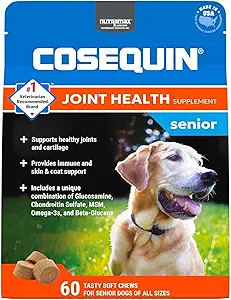As our beloved dogs age, they often face health challenges, and one of the most common issues is arthritis. This degenerative joint disease affects many senior dogs, leading to pain, stiffness, and mobility problems. Understanding how to care for a senior dog with arthritis can significantly improve their quality of life.
What Is Arthritis in Dogs?
Arthritis, also known as osteoarthritis or degenerative joint disease, occurs when the cartilage in a dog’s joints wears down over time. This leads to inflammation, pain, and decreased mobility. Senior dogs are particularly prone to arthritis, though it can affect dogs of all ages and breeds.
Common Signs of Arthritis in Senior Dogs
Recognizing the early signs of arthritis can help you provide timely care:
– Limping or favoring one leg
– Difficulty getting up, lying down, or climbing stairs
– Stiffness after resting
– Reluctance to run, jump, or play
– Irritability or changes in behavior
– Licking or chewing at joints
How to Help a Senior Dog with Arthritis
While arthritis in dogs cannot be cured, many ways exist to manage and ease your dog’s discomfort.
1. Provide a Comfortable Environment
Creating a comfortable environment for a senior dog with arthritis is essential. Orthopedic dog beds, such as memory foam options, provide extra cushioning to relieve joint pressure—place ramps or steps around the house to help your dog avoid jumping on furniture or navigating stairs.
2. Maintain a Healthy Weight
A balanced diet for senior dogs is crucial to maintaining a healthy weight and managing arthritis symptoms. Some dog foods containing ingredients like glucosamine and chondroitin are specially formulated to support joint health.
3. Use Joint Supplements
Joint dog supplements can significantly improve your pet’s mobility and reduce inflammation. Glucosamine, chondroitin, and omega-3 fatty acids are some of the most common supplements recommended for arthritic dogs. Always consult your vet before adding supplements to your dog’s diet.
4. Gentle Exercise
Regular, low-impact exercise is essential for keeping your senior dog’s joints moving and muscles strong. Activities like slow walks or swimming are excellent choices for dogs with arthritis, as they allow movement without putting too much stress on the joints.
5. Physical Therapy and Massage
Physical therapy can be very beneficial for senior dogs with arthritis. Veterinarians may recommend sessions with a canine physical therapist, who can design exercises to strengthen muscles and improve flexibility. Additionally, gentle massage can relieve muscle tension and promote better circulation.
6. Medications for Pain Relief
Your veterinarian may prescribe anti-inflammatory medications or pain relievers to help manage your dog’s arthritis pain. Nonsteroidal anti-inflammatory drugs (NSAIDs) are commonly used, but other medications like gabapentin or tramadol might be recommended in severe cases. Always follow your vet’s dosage instructions carefully.
Best Joint Supplements for Senior Dogs
Some popular joint supplements to consider:
Nutramax Cosequin – Contains glucosamine and chondroitin to support cartilage health.

Zesty Paws Mobility Bites– Soft chews with glucosamine, MSM, and green-lipped mussel.
Grizzly Omega Health for Dogs – Rich in omega-3 fatty acids for reducing inflammation.
Creating a Senior Dog-Friendly Home
Your role as a dog owner is crucial in making your home accommodate your dog’s changing needs. Here are some tips to make your dog feel more comfortable:
Non-Slip Flooring: Senior dogs with arthritis may struggle on slippery floors, so add non-slip rugs or mats.
Elevated Dog Bowls: Raising food and water bowls can reduce strain on their neck and back.

Warmth and Comfort: Keep your dog warm, as cold weather can aggravate arthritis. Heated dog beds or blankets can offer extra comfort.
Final Thoughts: Caring for a Senior Dog with Arthritis
While arthritis is a common issue for senior dogs, many ways exist to improve their quality of life. With a combination of proper diet, joint supplements, gentle exercise, and pain management, your dog can continue to enjoy their golden years comfortably.
By following these care tips and staying proactive about your dog’s arthritis management, you’ll help your senior pet live their happiest and healthiest life.




